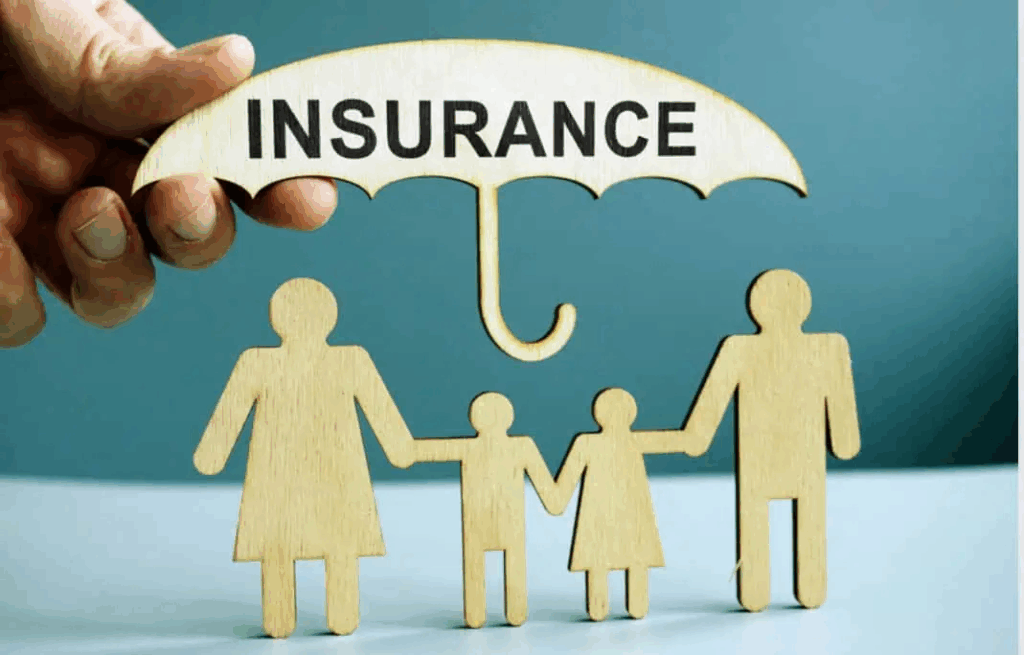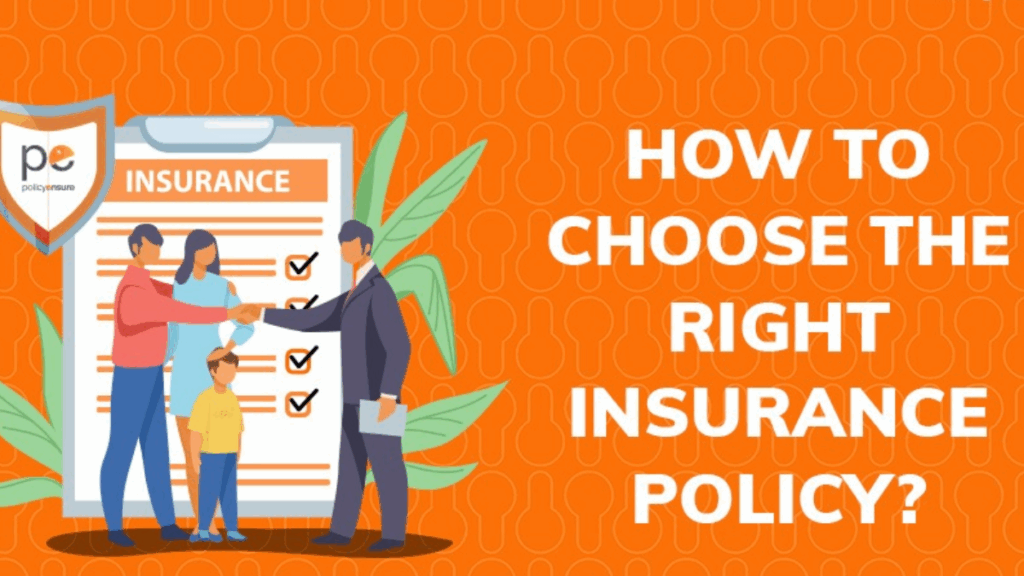In today’s unpredictable world, securing your financial future has never been more important. Life is full of uncertainties, from health emergencies and accidents to property damage and unforeseen liabilities. Insurance acts as a safety net, providing financial protection and peace of mind during challenging times. With modern insurance solutions, the process has become hassle-free, allowing individuals and families to safeguard their future with minimal stress and maximum efficiency.
Whether it’s health, life, car, or property insurance, having the right coverage ensures that you can focus on living your life fully while being prepared for any unexpected events. This article explores the importance of insurance, the types of plans available, benefits, and tips for choosing the best policies, along with FAQs to address common concerns.
What is Insurance?

Insurance is a financial arrangement in which an individual or organization pays a regular premium to an insurance company in exchange for protection against specific risks. In the event of an unfortunate incident, the insurer compensates the policyholder for the loss, ensuring financial stability and peace of mind.
Key features of insurance:
- Premium: The amount paid periodically to maintain coverage.
- Coverage: The risks or events insured under the policy.
- Policy Term: The duration for which the insurance is valid.
- Claim: The process of requesting financial compensation from the insurer when a covered event occurs.
Insurance transforms financial uncertainty into security, making it an essential part of modern financial planning.
Types of Insurance
1. Life Insurance
Life insurance provides financial protection to your family in the event of your death. It ensures that your loved ones are financially secure, covering expenses like daily living costs, education, and debts.
Types of life insurance:
- Term Life Insurance
- Whole Life Insurance
- Endowment Plans
- Unit-Linked Insurance Plans (ULIPs)
2. Health Insurance
Health insurance covers medical expenses, including hospitalization, surgeries, and sometimes even preventive care. With rising healthcare costs, health insurance ensures that medical emergencies do not become a financial burden.
Types of health insurance:
- Individual Health Plans
- Family Floater Plans
- Critical Illness Plans
- Maternity and Newborn Plans
3. Car Insurance
Car insurance provides protection against accidents, theft, or damage to your vehicle. It also covers third-party liabilities in case of injuries or damages caused to others.
Types of car insurance:
- Third-Party Liability Insurance
- Comprehensive Car Insurance
4. Home Insurance
Home insurance safeguards your property against risks like fire, theft, natural disasters, and other damages. It ensures that homeowners can repair or rebuild their property without financial strain.
Types of home insurance:
- Structure Insurance
- Contents Insurance
- Combined Home Insurance
5. Travel Insurance
Travel insurance covers unexpected events while traveling, such as medical emergencies, trip cancellations, lost baggage, or flight delays. It provides peace of mind for both domestic and international travelers.
Benefits of Hassle-Free Insurance
1. Financial Security
Insurance provides a financial safety net, reducing stress during emergencies and ensuring your family’s stability.
2. Peace of Mind
Knowing that you are covered against major risks allows you to focus on daily life without constant worry about unexpected financial losses.
3. Easy Claims Process
Modern insurance companies have simplified claims processes, offering online claims submission, instant approvals, and prompt disbursement of funds.
4. Tax Benefits
Certain insurance policies, like life insurance and health insurance, provide tax deductions under various sections of the Income Tax Act.
5. Flexibility and Customization
Hassle-free insurance plans often come with options to customize coverage according to individual needs, ensuring that you only pay for what matters most.
6. Investment and Savings Opportunities
Some insurance products, such as endowment plans and ULIPs, combine protection with investment, helping you grow wealth while staying insured.
How to Choose the Right Insurance

1. Assess Your Needs
Evaluate your financial goals, family obligations, and potential risks to determine the type and amount of coverage required.
2. Compare Plans
Compare premiums, coverage limits, claim settlement ratios, and additional benefits across different insurance providers.
3. Check the Insurer’s Reputation
Choose companies with a strong track record of timely claim settlements and customer service.
4. Understand Policy Terms
Read the policy documents carefully to understand inclusions, exclusions, waiting periods, and claim procedures.
5. Opt for Digital and Hassle-Free Options
Many insurers offer online policy purchase, renewal, and claim processes, reducing paperwork and saving time.
Common Misconceptions About Insurance
- Insurance is Expensive: Modern plans offer flexible premiums to fit various budgets.
- Claims Are Complicated: Online portals and digital assistance have simplified the process significantly.
- Only Elderly People Need Insurance: Everyone, including young professionals and families, benefits from insurance coverage.
- Life Insurance is Only for Death: Some life insurance plans offer maturity benefits, payouts for critical illness, and savings components.
- Health Insurance Covers Everything: It’s essential to read the policy carefully, as certain treatments or conditions may be excluded.
FAQs (Frequently Asked Questions)
1. What is the difference between term insurance and whole life insurance?
Term insurance provides coverage for a fixed period and pays a death benefit if the insured dies during the term. Whole life insurance offers lifelong coverage with a savings or investment component.
2. How much life insurance coverage do I need?
A general rule is 10–15 times your annual income, considering liabilities, dependents’ needs, and future expenses.
3. Can I claim health insurance for pre-existing conditions?
Yes, but most policies have a waiting period (usually 2–4 years) before covering pre-existing conditions.
4. How does car insurance work in case of an accident?
Car insurance compensates for repair costs of your vehicle and third-party damages. Comprehensive plans cover both your car and third-party liabilities.
5. Are home insurance premiums tax-deductible?
No, but life insurance-linked home loan benefits can provide tax relief. Direct home insurance premiums typically do not offer deductions.
6. Can I buy multiple insurance policies for the same risk?
Yes, but make sure to disclose existing policies to the insurer to avoid claim denial due to over-insurance.
7. How do I make a claim easily?
Use digital portals or mobile apps provided by the insurer, submit required documents, and track your claim status online.
8. What is an insurance premium?
It is the amount you pay regularly (monthly, quarterly, or annually) to maintain coverage.
9. Can I customize my insurance policy?
Yes, most modern plans offer add-ons or riders to enhance coverage for specific needs like critical illness, accidental death, or hospital cash.
10. Is online insurance reliable?
Yes, buying insurance online is secure, fast, and often comes with additional discounts or benefits.
Tips for Hassle-Free Insurance
- Review Policies Annually: Ensure coverage remains adequate for your changing needs.
- Use Digital Tools: Leverage apps and websites for easy management and renewal.
- Keep Documents Ready: Maintain copies of ID proof, medical records, and policy documents.
- Understand Exclusions: Know what is not covered to avoid surprises during claims.
- Set Up Auto-Pay for Premiums: Avoid policy lapses due to missed payments.
Also Read: Smart Health Insurance: Peace Of Mind For You And Your Family
Conclusion
Insurance is no longer a cumbersome process reserved for complex paperwork and long queues. With hassle-free insurance, securing your financial future has become simpler, faster, and more efficient. Whether it’s life, health, car, home, or travel insurance, the key is to choose the right policy that aligns with your needs, budget, and long-term goals.
By adopting a proactive approach to insurance, you can protect yourself and your loved ones from financial setbacks, enjoy peace of mind, and focus on living life fully. With modern technology, digital applications, and simplified claims processes, achieving comprehensive coverage is just a few clicks away. Don’t wait for uncertainty to strike — invest in hassle-free insurance today and secure your future with confidence.



